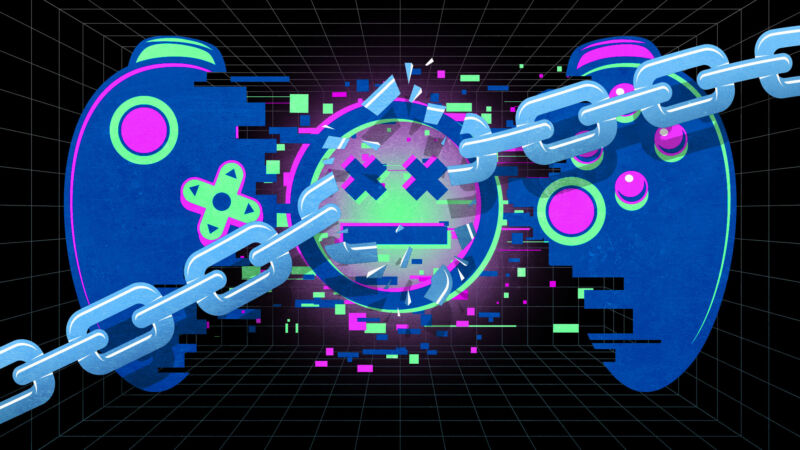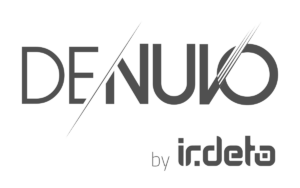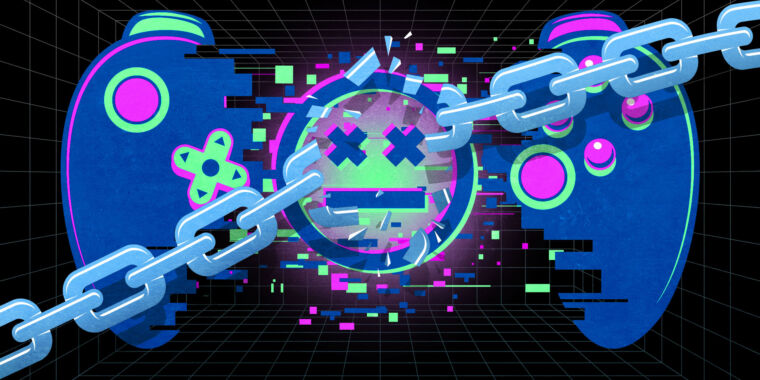
Aurich Lawson | Getty Images
Simply mentioning the name “Denuvo” among some gamers is almost guaranteed to get an instant, strong response. Just look at the comment threads under any Ars article on Denuvo and you’ll see a lot of complaints about its DRM-enhancing anti-piracy technology.
Irdeto, the company that acquired Denuvo in a 2018 purchase, generally doesn’t make a habit of commenting extensively on this reputation (or its secret DRM schemes) in the public press. So when Irdeto Chief Operating Officer of Video Games Steeve Huin agreed to publicly defend his company in an exclusive interview with Ars Technica, I jumped at the chance to talk to him.
Irdeto
As it turns out, the people making Denuvo are well aware of their image in the wider gaming world. “In the piracy/cracking community, we are considered evil because we help DRM exist and we make people monetize games,” Huin told Ars.
But Huin stressed to Ars that he sees Denuvo as a positive force for the gaming community as a whole. “Anti-piracy technologies benefit game publishers, [but also] is of benefit to the players in that it is the [publisher’s] investment and it means the publishers can then invest in the next game,” he said. “But people usually don’t think about that enough.”
“Whether people want to believe it or not, we’re all gamers, we love gaming, we love being a part of it,” he continued. “We develop technologies with the intention of making the industry better and stronger.”
Trust but verify
Aside from general philosophical discussions about whether DRM should exist at all, by far the most substantive complaints about Denuvo’s technology revolve around its alleged impact on gaming performance. Sometimes these accusations come from the crackers themselves and must be weighed against strong denials from Denuvo and the game’s developer. Other times, the allegations come from playmakers, like candid Teck 7 Director Katsuhiro Harada, who said in a 2018 tweet thread that the “third party anti-tamper middleware” (i.e. Denuvo) was responsible for “frame rate drops” in the game.
In 2019, an Ars analysis was compared to a Denuvo-free copy of Batman: Arkham Knight on the Epic Games Store to a Denuvo-loaded copy of Steam found no difference in performance. But a series of analyzes from YouTube channel Overlord Gaming in 2018 found significant performance differences in games measured immediately before and after the Denuvo protection was removed.
In our chat, Huin suggested that this kind of public analysis wasn’t very helpful because “gamers [almost] never access the same version of [a game] protected and unprotected. There may be a protected and an unprotected version during the life of the game, but they are not comparable as these are different builds over six months, lots of bug fixes, etc, which could make it better or worse.”
In the case of counter-sabotage, I think there’s a clear statement that there’s no discernible impact on gameplay because of the way we do things.
Irdeto COO of video game Steeve Huin
Huin insisted that Irdeto “makes the effort to apply security and validate that performance is as it was and unaffected… In the case of counter-tampering, I think there is a clear statement that there is no observable impact is on gameplay because of the way we do things.”
However, after years of public outcry over Denuvo’s alleged performance impact, Huin said he knows much of the gaming community won’t take his word for it. “Unfortunately, our vote is not enough to convince people because we are not trusted in their thoughts as a starting point in that debate,” he said.
To get around that distrust, Huin said Irdeto is working on a program that would provide two nearly identical versions of a game to trusted media: one with Denuvo protection and one without. After that program rolls out, hopefully sometime in the next few months, Huin hopes that independent benchmarks will allow the tech press “to see for yourself that the performance is similar, identical … and that would yield something that would hopefully become trusted by the community.”

